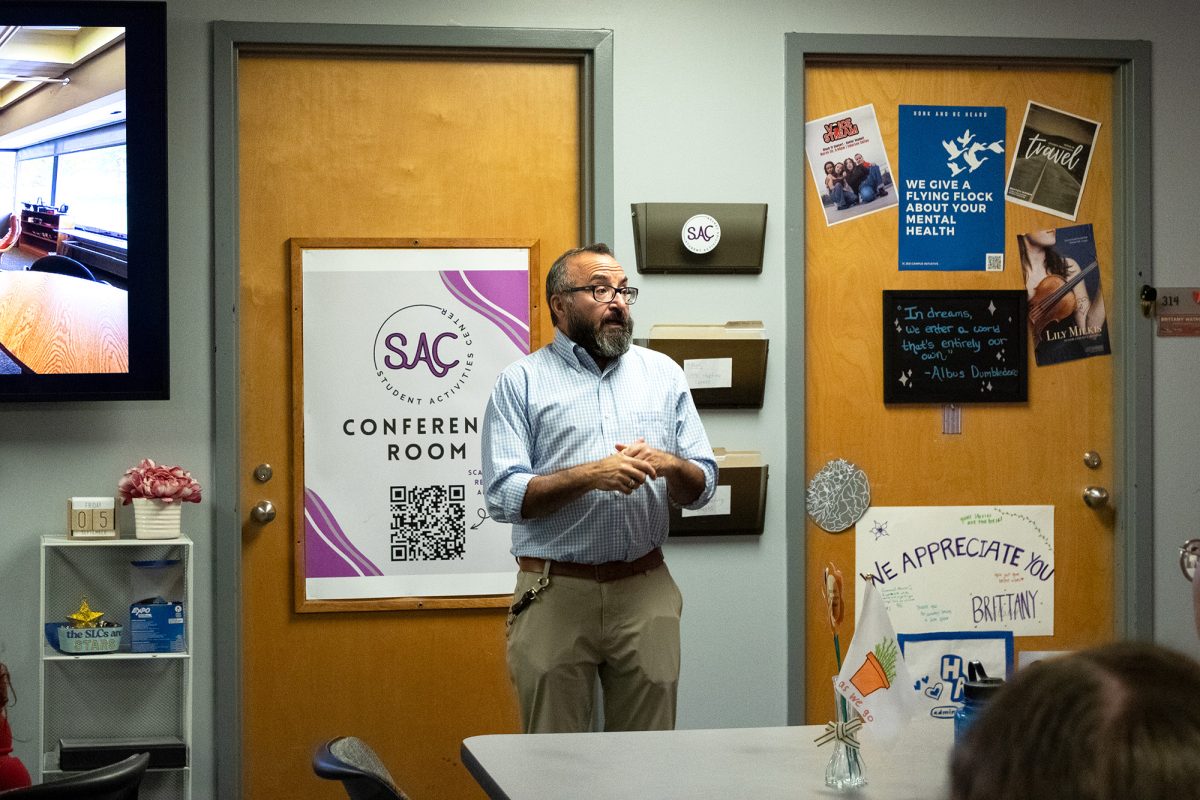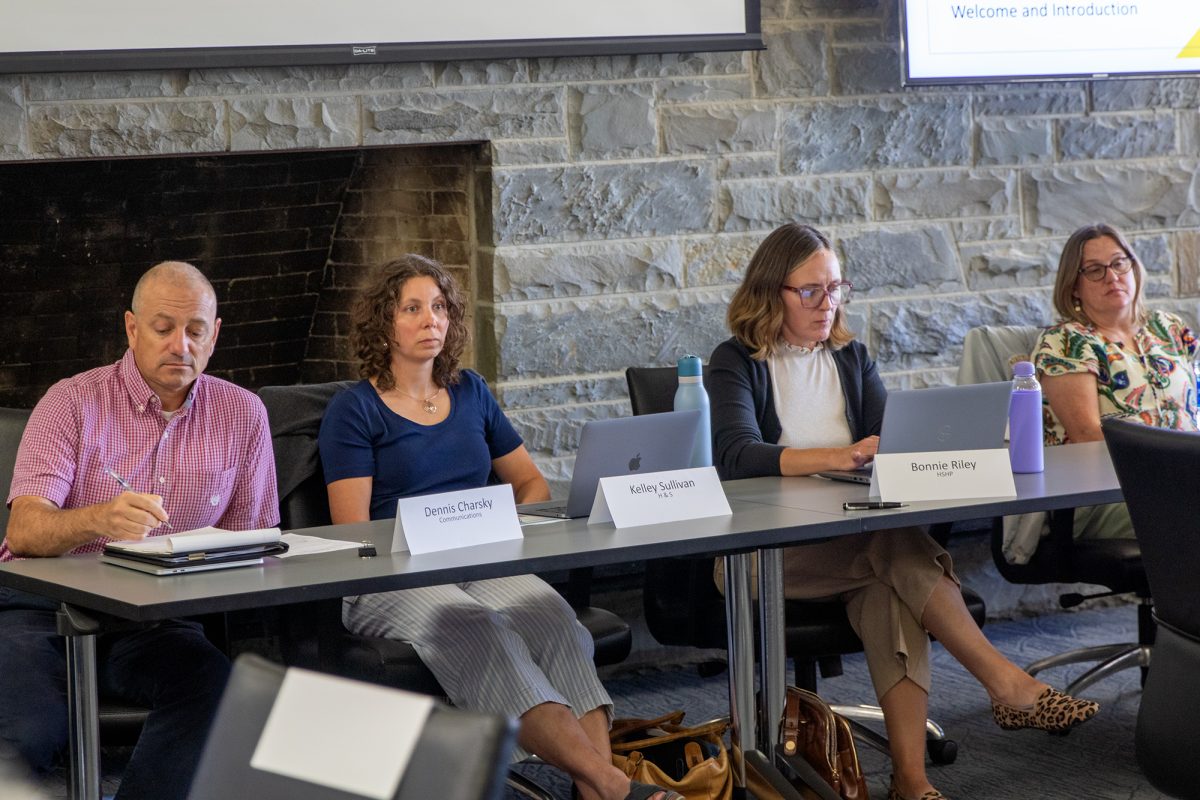Cayuga legend tells of the world beginning with a fall — a woman pushed through a hole in the sky and flown by birds to the back of a turtle, which became North America. The woman sprinkled dust to make stars and created the moon and sun. She gave birth to twin sons, one good and one bad, and their creations filled the earth with joy and pain.
This is the creation story, the genesis of the Haudenosaunee people.
The Haudenosaunee and other Native American tribes will be celebrated this month at Ithaca College during Native American Heritage Month. Jack Rossen and Brooke Hansen, associate professors of anthropology, worked with other campus departments to organize six events that highlight traditional components of Native American culture, including sport, dance and storytelling.
Rossen, who helped introduce the Native American studies minor to the college three years ago, said the Cayuga have been in Ithaca since the 1100s. He said the month’s events are about cultural revitalization.
“[They are] about Native people regaining pride in who they are,” he said. “In their history, in their culture, in their language [and] in their stories.”
The Cayuga Lake basin was once home to 43 Cayuga villages. Today, all that anthropologists find are charred relics, decades-old souvenirs of when George Washington commissioned the destruction of the Native people and their livelihoods, Hansen said. The murders were so extensive that Rossen and Hill called the acts genocide.
Hansen said there are still signs posted around the lake that read ‘No Cayuga.’ She said the signs indicate the continuing protests by anti-Native American groups.
Hansen said those who protest Native land claims don’t understand the importance of homeland to the culture.
“Taking Native people out of that ancestral land is like taking a knife and cutting your connection,” she said.
The College’s celebrations began Oct. 29 with a reading by Onondaga writer and artist Eric Gansworth. He said his works attempt to challenge Native cultural stereotypes.
Hansen related Gansworth’s works to a “cultural renaissance” among Native American artists.
“It’s really about struggles for cultural identity that he writes about in a beautiful way,” Hansen said.
On Tuesday, about 45 people gathered in Textor 102 to watch “Sacred Sport,” a movie highlighting the Native origins of lacrosse. Alf Jacquese, a traditional stick-maker, demonstrated his craft before the film began.
Dan Hill of the Heron Clan Cayuga visited the college last Thursday for a ceremonial raising of the Haudenosaunee flag, which commemorates the confederacy and its inherent rights to land and sovereignty as promised by the federal government.
Hill moved back to Ithaca in 2005, about the same time SHARE, a group co-founded by Hansen and Rossen which is dedicated to strengthening Haudenosaunee-American relations, purchased and repatriated 70 acres of land to the Cayuga people.
Hill said returning to the land since the government disbanded the Native people 200 years ago was a childhood dream.
“I have a hard time believing I’m back there, and other people are coming back,” he said.
Hill said environmental crises pertaining to Native American land reservations parallel those of the international community.
“[Haudenosaunee philosophy says] you’re not to do damage to the land that can’t be cleaned up,” he said.
Hansen said the college could learn from Native peoples’ emphasis on the protection of natural resources.
“[Haudenosaunee] culture has so much to offer us in terms of environmental philosophies [and] taking care of the land,” Hansen said.
Hansen is currently inviting students to participate in a field trip Nov. 11 to Candandaigua, N.Y., for a ceremony commemorating the 1794 treaty enacted between the government and Haudenosaunee people — a treaty which she said has been broken countless times since.
Senior Bailey Lojek, a Native American studies minor, said many students are unaware of the strong Native American presence in the area.
“I think it’s important to know the people who were here first,” Lojek said. “Where they are today is really important, because people tend to put Native American culture in the past.”
Hill and Gansworth said though biases endure, they appreciate heritage month as a symbolic gesture and the opportunity to raise appreciation for the Native population of the region.
Hansen said she hopes people will continue to find ways to honor the Cayuga people.
“We’re trying to fulfill this mandate from our college to reach out to the community, to be a bridge [between cultures],” she said.







